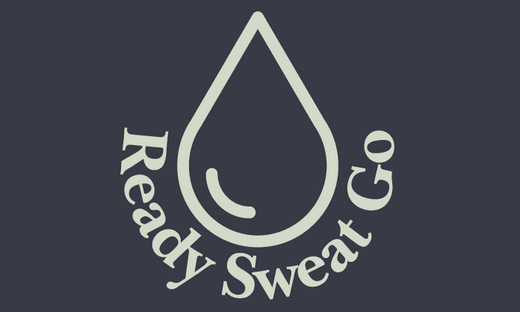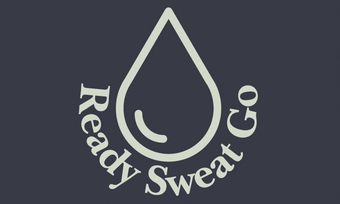Protein For Endurance Runners
While it is easy to focus on carbs when it comes to the day of the big race, you shouldn’t survive on carbs alone. Fats and protein are vital for you, too, but sometimes, it is difficult to know who to believe when reviewing nutrition advice.
After an online search, a quick review of answers unveils a wide range of opinions on the protein you need when racing, not to mention after a run, for recovery.
A few sources, including Run Ultra, suggest consuming 15% of your total calories from protein. If you dislike maths, you might hate the idea of working this out, but from experience, most runners are okay with numbers.
People who would ordinarily struggle with invoices or working out a tip in a restaurant leap to life when calculating the miles they ran per hour or determining where they should pause during a big event to take on fluids and food!
And, of course, the proper calorie intake depends on you. No website should ever give you a definitive number to consume because the right advice for one person could be dangerous for you. It’s not a cop-out, but you must take responsibility for yourself. This is why guidelines give you a good starting point; from there, you can try for yourself.
It’s an excellent way to justify trying different foods and snacking at various times of the day! Don’t overdo it, and pay attention to how you feel during and after it, but have fun with it, too.

Calculating Protein Intake
The suggestion of consuming 15% of your total calories from protein is useful, but here’s a practical way to calculate it:
Determine Your Daily Caloric Intake
First, estimate how many calories you need daily. For ultra-marathon runners, this can range significantly based on training intensity, but a common range is between 2,500 and 3,500 calories per day.
Calculate Protein Calories:
Multiply your total caloric intake by 0.15 (15%). For example, if you consume 3,000 calories per day:
3,000 calories * 0.15 = 450 calories from protein.
Convert Protein Calories to Grams:
Since each gram of protein provides 4 calories, divide the protein calories by 4:
450 calories ÷ 4 = 112.5 grams of protein per day.
Following these steps, you can quickly determine how much protein you need without getting bogged down in complex equations.
Go to the source as much as you can
Let’s be honest: the simpler you keep things, the more likely you are to build good habits and make intelligent choices. A piece of advice from former sports nutritionist Sunny Blende, from an article over ten years old, still rings true. “Eat foods that are close to the source.”
Sunny gives an example with orange, saying an orange is better for you than drinking orange juice but drinking orange juice is better than eating orange marmalade. The topic of processed foods is challenging enough to warrant an entire website on its own. When you have time, and you can prepare fully, natural foods close to their source are ideal, but this isn’t always possible during an event.
Would you want to race for 100 miles with a sack of oranges on your back?
There are many great natural sources of protein, including nuts. No matter how light you pack for a long event, nuts are a top source of protein, carbs and healthy fats.
Take a look at the nutritional info of some of our favourites:
Walnuts
- Protein: 15.2 grams
- Carbs: 13.7 grams
-
Fats: 65.2 grams
- Omega-3: 9.08 grams (alpha-linolenic acid - ALA)
Almonds (technically a seed, but commonly known as a nut)
- Protein: 21.2 grams
- Carbs: 21.6 grams
-
Fats: 49.9 grams
- Omega-3: 0.001 grams (minimal ALA)
Cashews
- Protein: 18.2 grams
- Carbs: 30.2 grams
-
Fats: 43.8 grams
- Omega-3: 0.14 grams (minimal ALA)
Brazil Nuts
- Protein: 14.3 grams
- Carbs: 12.3 grams
-
Fats: 66.4 grams
- Omega-3: 0.008 grams (minimal ALA)
Peanuts (technically legumes, but commonly considered nuts)
- Protein: 25.8 grams
- Carbs: 16.1 grams
-
Fats: 49.2 grams
- Omega-3: 0 grams (no significant ALA)
Macadamia Nuts
- Protein: 7.9 grams
- Carbs: 13.8 grams
-
Fats: 75.8 grams
- Omega-3: 0.06 grams (minimal ALA)

Again, it depends on your preferences. If you find it easier to eat one form of protein than another, eat that protein. Most people prefer eggs to broccoli, so if that helps you get protein on board, find a way to enjoy that.
Protein-Rich Snack Examples and Timing Strategies
Knowing how much protein to consume and when and in what form is essential.
Here are some examples and timing strategies:
Pre-Run Snacks:
About 1-2 hours before your run, consider a light protein-rich snack that’s easy to digest:
- Greek Yoghurt with Honey: A small serving of Greek yoghurt drizzled with honey provides protein and quick energy.
- Banana with Nut Butter: A banana paired with a tablespoon of almond or peanut butter offers a good balance of protein and carbohydrates. To increase the carbs, have it on some brown toast or oatcakes.
During the Run:
For ultra-marathons, it’s crucial to refuel periodically. Choose easily portable, protein-rich snacks that you can consume quickly:
- Nuts and Seeds: A small pack of mixed nuts and seeds can boost protein. I find them easier to digest when combined with raisins, dried cranberries, or apricots.
- Protein Bars: Look for bars with at least 10 grams of protein and minimal added sugars and oils. This is harder than it sounds.
Post-Run Recovery:
Within 30 minutes to an hour after your run, focus on recovery with a protein and carbohydrate combination:
- Protein Shake: A quick and effective way to get suitable protein and carbs in is to use a protein shake. Just add water.
- Chicken or Turkey Wrap: A whole-grain wrap with lean chicken or turkey breast, veggies, and a light spread of hummus offers a balanced recovery meal.
- Lentil Dahl: Nothing is more satisfying than a vegan curry when properly hungry! Or Dahl, to be precise. French Puy lentils and the humble Red Lentil pack contain the most protein, with 26 and 25 grams per hundred grams, respectively. This will come down when cooked, however. We like this recipe from BBC Good Food for its simple and speedy take on the dish.
By strategically incorporating these protein-rich snacks into your routine, you can optimise your nutrition for better performance and recovery during training and ultra-marathon events.
Ultra races can be hugely enjoyable, but you don’t need me to tell you they are punishing. This doesn’t mean you must punish yourself, so try various protein choices and find what works for you. So there you have it; if you need it, you have our permission to stock up on peanut butter. It’ll help you race better!
Resources:
Diet for the ultra runner:
https://run-ultra.com/training/diet-for-the-ultra-runner
Nutrition for ultra runners: https://ultraversesupplements.com/ultramarathon-nutrition-for-ultra-runners
A refresher nutrition course for runners: https://ultrarunning.com/features/a-refresher-nutrition-course-for-ultrarunners/
Nutrition strategy for ultra-marathon runners: https://thestringbean.co/nutrition-strategy-for-an-ultramarathon-or-multi-day-race/




Leave a comment